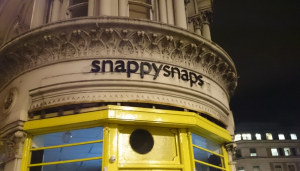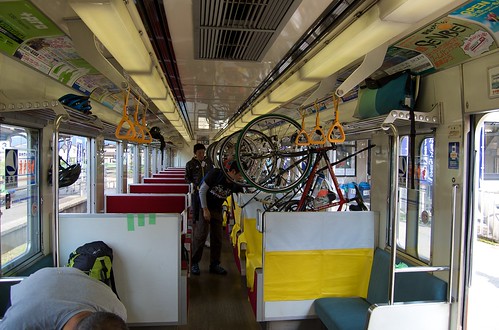Mike Gabriel: @DebConf17: Work for Debian and FLOSS I got done during DebCamp and DebConf... and Beyond...
People I Met and will Remember
- Angela, my wife, I met daily on Jabber. Thanks for letting me go to this great DebConf17 conference and keeping our family up and running
- Andreas asking people to either impersonate his wife or adoptive daughter for a photo shooting. You gave such a touching talk on Friday, together with Minh from Vietnam.
- Holger for nagging us about stone age bugs in the Debian Blends package and the outdated software list in Debian Edu (Kernel 2.6.32 package are finally not mentioned anymore)
- Vagrant, Foetini and Alkis for there efforts on LTSP and their success in Greece with bringing Debian into Greek schools
- Tiago, Jerome and all the others from the local team, providing us with such great food and support. THANKS folks!!!
- Enrico who showed my his 20 liner version of nodm aka lightdm-autologin-greeter (and also made me curious on staticsite)
- Jonas Smedegaard for teaching me the solarized theme and loads of other things
- Siri for being around and really having a stand for making Debian look more like a product
- Dimitri John Ledkov for chiming in on Ayatana Indicators as next Indicators upstream for Ubuntu 18.04 LTS
- Chrys for chiming on .desktop file proxying, meet you back in #arctica on Freenode
- Sean for asking me daily, if my luggage had arrived (see below), as he shared the same fate during DebCamp
- the owner of that nice shop where I bought loads of clothes while waiting for my luggage still stuck in Hamburg
- Steven for looking into gcc compiler macros with me for nx-libs autotools conversion, also probably - luggage wise - the lightest traveller among us
- Fabian for sharing is sadness and pain about the FLOSS non-situation in schools all over Quebec
- Mario from New Zealand and Jos from the Netherlands chiming in on FLOSS and education on IRC after having watch my talk about Debian Edu / Skolelinux. Mario, we will soon ask you for opensourcing your teacher screen over WiFi solution...
- Lior who thinks about bringing Debian Edu / Skolelinux to Israel. (That would be awesome!)
- Rhonda for having time for my Debian Backports woes and probably having been quite forgiving ;-)
- Bobby who is a font engineer during the week and (used to be) a cave explorer and mapper in his spare time
- Ximin for providing deep insight in the key signing workflow and the caff approach to it
- Daniel for sharing work experiences and nudging me to go with Remote Desktop stuff (out of pure personal interest *g*, of course, but still)
- Tzfarir and Gunnar for a nice chat on the last night of DebConf
- Finding my luggage
- After I had arrived at Montreal Airport, I found out that my luggage stayed in Hamburg
- So the first 4.5 days, I was continuously busy with calling Lufthansa for package item tracking...
- Go shopping twice, to update my plastic bag of fresh clothes...
- MATE 1.18 in Debian
- Finalize package builds of MATE 1.18 in Debian unstable (because of some GLib2.0 regression, thanks to Iain Lane for the prompt fix and upload)
- Debian Edu
- clear up src:package debian-edu regarding the task files related to Debian Pure Blends
- this work is still in progress...
- Debian Blends (esp. the blends-dev part of the blends src:package)
- You can now have empty Depends: / Recommends: / Suggests: fields with the list of packages then starting in the next line.
- It is now possible to have real Depends: fields in task files that become Depends: fields in debian/control. Packages targetting Depends: that are not in unstable get de-promoted to the Suggests: field in debian/control.
- Tested with most available Debian Pure Blends meta-packages
- I also pointed Daniel Pocock with his new GnuPG clean-room project towards Debian Pure Blends
- Ring: A 'new' distributed video chat tool without mediating servers. Good concept, however, we could not get it to work on the DebConf campus.
- Debian Design Team (which I am now a member of, I guess)
- Dive into and out of the vision of a Debian Uniform set of packages, turning the collection of software in Debian into one thing.
- Run my terminal applications now with the Base16 profile 'solarized-universal'. However, Debian Design will be much more than 16 colors in a console terminal.
- Let's turn Debian into something like a potential product!
- Debian Policy:
- I even helped with a Debian Policy bug...
- Skolab Groupware: Forking Kolab (v2) as a new project, named the Skolab Groupware. Instead of migrating my own mail server away from Kolab (v2), I chose continuing maintenance for it, at least for the core compoents:
- https://github.com/Skolab-Groupware
- Targetting small to medium sized installations with little administration effort.
- I mainly ported Kolab's kolab-webadmin PHP project to a recent status so that it can run under Debian testing/unstable: https://github.com/Skolab-Groupware/skolab-webadmin
- Big thanks to Siri Reiter for consulting me on artwork and for helping me putting together a simple logo for the project.
- nx-libs: Work on several PRs:
- https://github.com/ArcticaProject/nx-libs/pull/496 (review + merge)
- https://github.com/ArcticaProject/nx-libs/pull/498 (code)
- https://github.com/ArcticaProject/nx-libs/pull/499 (code)
- https://github.com/ArcticaProject/nx-libs/pull/501 (review + merge)
- Play with KDE5 and nx-libs: IT WORKS!
- Weblate:
- Become hosted by hosted Weblate for...
- Ayatana Indicators
- Arctica Project
- Skolab Groupware
- Talk: Supporting Debian Edu / Skolelinux as a Product: Lessons Learned
- Talk: Ayatana Indicators
- Ad-hoc BoF: Bits from the Debian+Ubuntu MATE Packaging Team
- Schedule: https://debconf17.debconf.org/talks/223
- Outcome: still to be published...
- Ad-hoc BoF: Debian for Remote Desktop Computing
- Schedule: https://debconf17.debconf.org/talks/60
- Outcome: still to be published...
- mate-settings-daemon
- mate-dock-applet
- brisk-menu
- mate-optimus
- caja-actions
- mate-common
- mate-tweak
- plank
- freerdp (2x)
- freerdp2
- gosa-plugin-mailaddress
- python-wither
- lightdm-autologin-greeter
- caja-rename
- freerdp (1.1) (actually twice, one of them a security upload)
- gosa-plugin-mailaddress
- mate-themes
- Prepare upload of caja-admin by asking for release tags upstream
- Talk Clint Byrums into a fresh upload of the long not touch
undistract-mepackage - Breed on different desktop layouts for Debian MATE (like in Ubuntu MATE)
- Do quite a bit of GnuPG key signing
- Update my consent with NM to pick up my work on collab-maint request processing again
 So much for my monthly blogging! Here s what I have been up to in the Open Source world over the last 6 months.
Debian
So much for my monthly blogging! Here s what I have been up to in the Open Source world over the last 6 months.
Debian
 For the non-Debian people among my readers: The following post presents bits of the decision-taking process in the Debian project. You might find it interesting, or terribly dull and boring :-) Proceed at your own risk.
My reason for posting this entry is to get more people to read the accompanying options for my proposed General Resolution (GR), and have as full a ballot as possible.
Almost three weeks ago, I sent
For the non-Debian people among my readers: The following post presents bits of the decision-taking process in the Debian project. You might find it interesting, or terribly dull and boring :-) Proceed at your own risk.
My reason for posting this entry is to get more people to read the accompanying options for my proposed General Resolution (GR), and have as full a ballot as possible.
Almost three weeks ago, I sent  .
Arriving in London and finding the Red Hat offices
After being stuck in trains for the weekend, but fortunately arriving at the airport in time, I finally made it to London with quite some delay due to the slow bus transfer from Stansted Airport. After finding the hotel, the next issue was to get food and a place which accepted my credit card, which was surprisingly hard in defence of London I must say though, that it was a Sunday, 7 p.m. and my card is somewhat special (in Canada, it managed to crash some card readers, so they needed a hard-reset). While searching for food, I also found the Red Hat offices where the hackfest was starting the next day by accident. My hotel, the office and the tower bridge were really close, which was awesome! I have been to London in 2008 the last time, and only for a day, so being that close to the city center was great. The hackfest didn t leave any time to visit the city much, but by being close to the center, one could hardly avoid the London experience
.
Arriving in London and finding the Red Hat offices
After being stuck in trains for the weekend, but fortunately arriving at the airport in time, I finally made it to London with quite some delay due to the slow bus transfer from Stansted Airport. After finding the hotel, the next issue was to get food and a place which accepted my credit card, which was surprisingly hard in defence of London I must say though, that it was a Sunday, 7 p.m. and my card is somewhat special (in Canada, it managed to crash some card readers, so they needed a hard-reset). While searching for food, I also found the Red Hat offices where the hackfest was starting the next day by accident. My hotel, the office and the tower bridge were really close, which was awesome! I have been to London in 2008 the last time, and only for a day, so being that close to the city center was great. The hackfest didn t leave any time to visit the city much, but by being close to the center, one could hardly avoid the London experience 
 )).
The incarnation of GNOME Software used by endless looks pretty different from what the normal GNOME user sees, since it s adjusted for a different audience and input method. But it looks great, and is a good example for how versatile GS already is! And for upstream GNOME, we ve seen some pretty great mockups done by Endless too I hope those will make it into production somehow.
)).
The incarnation of GNOME Software used by endless looks pretty different from what the normal GNOME user sees, since it s adjusted for a different audience and input method. But it looks great, and is a good example for how versatile GS already is! And for upstream GNOME, we ve seen some pretty great mockups done by Endless too I hope those will make it into production somehow.

 ).
For me, being the only (and youngest ^^) developer at the hackfest who was not employed by any company in the FLOSS business, the hackfest was also motivating to continue to invest spare time into working on these projects.
So, the only thing left to do is a huge shout out of THANK YOU to the Ubuntu Community Fund and therefore the Ubuntu community for sponsoring me! You rock! Also huge thanks to Canonical for organizing the sponsoring really quickly, so I didn t get into trouble with paying my flights.
).
For me, being the only (and youngest ^^) developer at the hackfest who was not employed by any company in the FLOSS business, the hackfest was also motivating to continue to invest spare time into working on these projects.
So, the only thing left to do is a huge shout out of THANK YOU to the Ubuntu Community Fund and therefore the Ubuntu community for sponsoring me! You rock! Also huge thanks to Canonical for organizing the sponsoring really quickly, so I didn t get into trouble with paying my flights.

 What happened in the
What happened in the  A pattern I see quite often on help channels goes like this.
A pattern I see quite often on help channels goes like this.
 Changes:
Changes:










 It s seeming increasingly likely that reports regarding the future of Banshee, Tomboy, and the rest of the Mono stack in the default Ubuntu desktop install are accurate. Ubuntu 12.04 will likely be the first Ubuntu release since 5.10 not to ship with any Mono apps in the default install ending a run of 12 releases over 6 years. The decision seems to have come about during the default apps session at the Ubuntu Developer Summit just ended in Orlando, Florida. Prior to
It s seeming increasingly likely that reports regarding the future of Banshee, Tomboy, and the rest of the Mono stack in the default Ubuntu desktop install are accurate. Ubuntu 12.04 will likely be the first Ubuntu release since 5.10 not to ship with any Mono apps in the default install ending a run of 12 releases over 6 years. The decision seems to have come about during the default apps session at the Ubuntu Developer Summit just ended in Orlando, Florida. Prior to 



 Dear lazyweb,
In a couple of weeks I'm likely to be going cycle touring around
the North East of England. This will involve first taking a train
from Nottingham. While looking at train options just now, I was
reminded of a little survey that I wanted to conduct.
Taking bicycles on trains in the UK can be a hit-or-miss
experience.
The UK's train routes are operated by a variety of
Dear lazyweb,
In a couple of weeks I'm likely to be going cycle touring around
the North East of England. This will involve first taking a train
from Nottingham. While looking at train options just now, I was
reminded of a little survey that I wanted to conduct.
Taking bicycles on trains in the UK can be a hit-or-miss
experience.
The UK's train routes are operated by a variety of 

